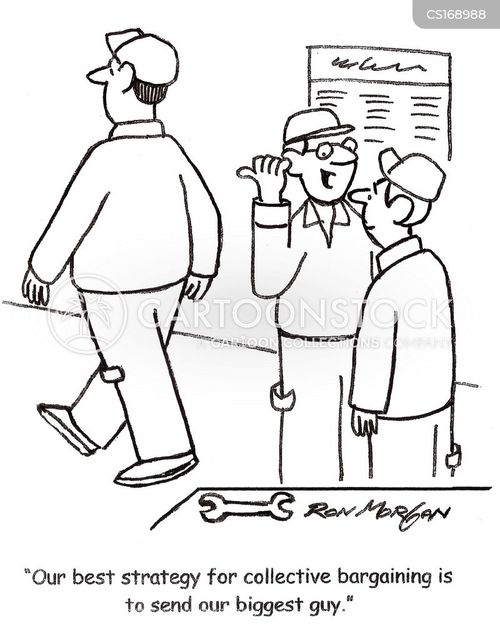
When you do so, you prevent yourself from considering alternative proposals that might meet your needs just as well. But making firm demands is usually a mistake. When talks get heated, it’s tempting to draw a line in the sand. To avoid or end a strike in collective bargaining negotiations, follow these five steps and enhance your negotiation skills: Strikes often end up being a waste of everyone’s time and money.

Collective bargaining how to#
How to Defuse a Strike Using Collective Bargaining Negotiations The decision to cut our losses can be extremely difficult to make. Yet such “sunk costs” weigh heavily on us. Economists have long advised us to ignore our past investments of time, money, and other resources when making decisions about the future. When the decision to “hold out for a few more days” is repeated, a strike can last for months, even years. Incremental commitment to a strike can make it difficult to end one.Viewing negotiation as a competition to be “won” keeps us focused on distributive negotiation at the expense of integrative bargaining, and stands in the way of an agreement that will satisfy everyone’s interests.At times, elected union representatives may be more concerned about appearing to “stand firm” than with working out a deal with management, for example. Agents at the bargaining table can have incentives that are misaligned with the interests of those they represent in collective bargaining negotiations.We sometimes are even willing to pay good money to punish those who treat us unfairly. Fairness concerns cause negotiators to reject deals that would leave both sides better off.When one side doubts the other side’s claims, a strike becomes even more tempting. Overconfidence leads negotiators on both sides to believe their cases are stronger than they really are, while underestimating the other side’s willingness to stand firm.Causes of StrikesĪ number of factors contribute to strikes and prevent parties from reaching agreement in collective bargaining negotiations: Yet many negotiators fail to recognize this fact until it’s too late.


Usually, disputing parties would do better to remain at the negotiating table than to head for the picket lines.
Collective bargaining download#
Download our FREE special report, Negotiation Skills: Negotiation Strategies and Negotiation Techniques to Help You Become a Better Negotiator, from the Program on Negotiation at Harvard Law School. Build powerful negotiation skills and become a better dealmaker and leader.


 0 kommentar(er)
0 kommentar(er)
